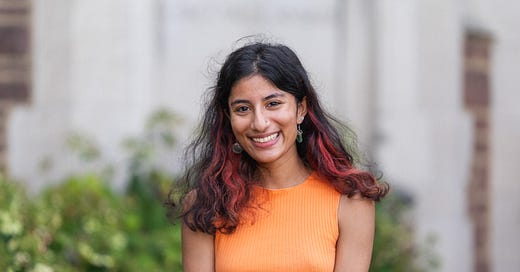Monmita Chakrabarti is a writer from Columbus, OH by way of Bengal. Their work can be found in The Audacity, Joyland Magazine, Bending Genres, and Laurel Moon, and Passages North.
Two weeks ago we published their essay on the complexities of identity, family history and language titled “Notes on Myopia”. The essay delves into the significance of names, t…






